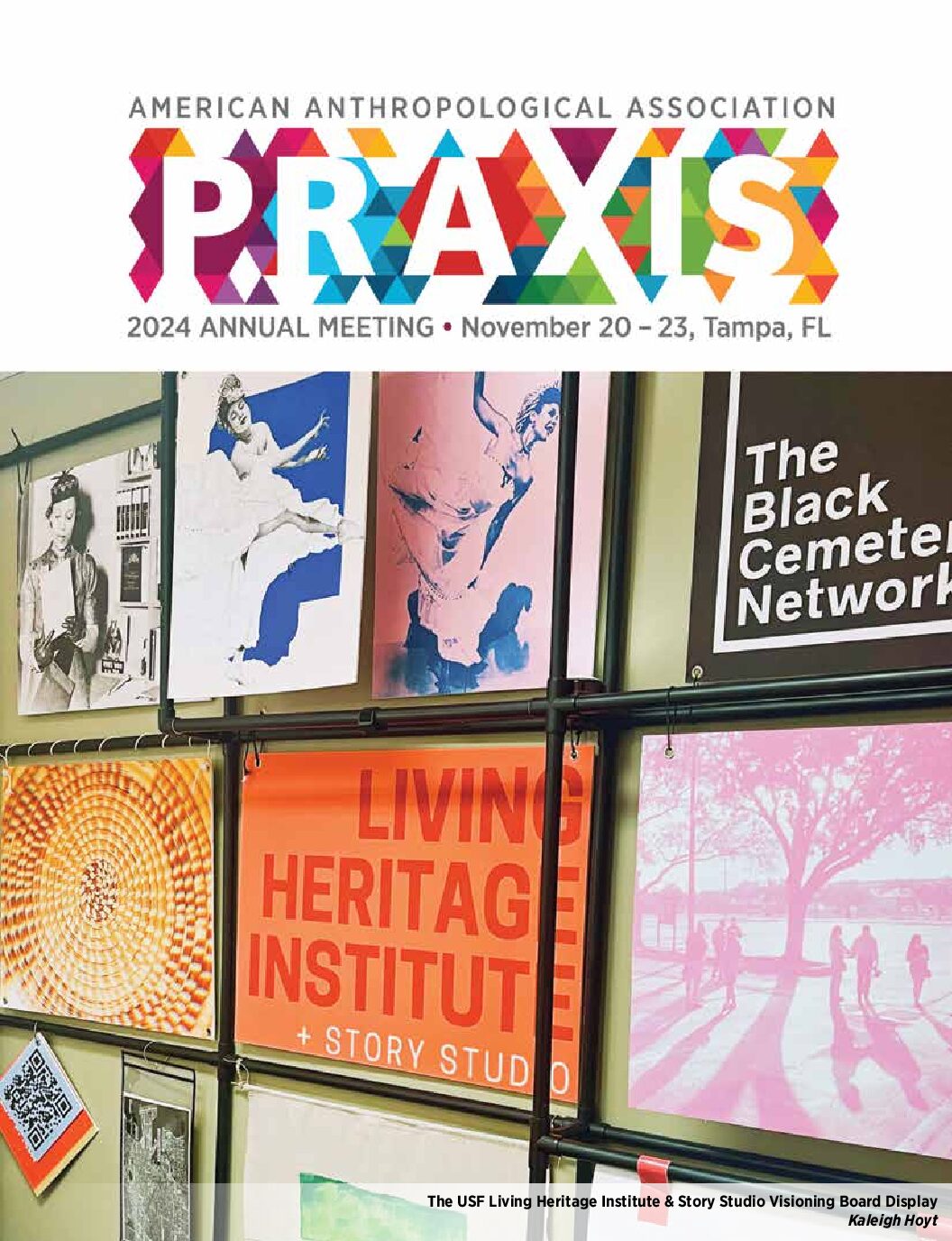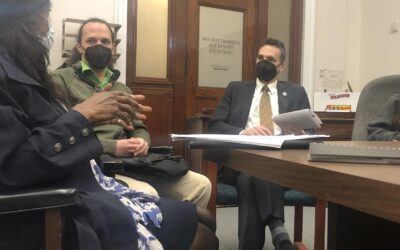“Off the Record and In the Loop”: Excavating Power in the Washington Foreign Policy Establishment
The Association for the Anthropology of Policy
Negar Razavi
September 19, 2017
Power and the Washington Establishment
Graduate Student Paper Prize Winner
These days the “Washington Establishment” has become shorthand for an out-of-touch political elite, whose ineptitude, privilege, and corruption we digest through the 24-hour news cycle and binge-worthy dramas like “House of Cards” and “Scandal.” Apart from these popularized characterizations, however, what do we actually know about the people who shape the policies that affect us? More importantly, how are members of the Establishment able to retain power despite such popular enmity towards their authority?
While the systemic and toxic role of “big money” and other interest groups in American politics undoubtedly accounts for some of this disconnect, such an explanation only takes us so far without a deeper understanding of how power in Washington, DC is exerted through an intricate web of social relationships, obligations, boundaries, and affective practices. Drawing on more than two years of fieldwork (and ten years’ experience developing relationships) within DC’s foreign policy establishment, here I want to call particular attention to what I observed as an “in the loop and off the record” culture in Washington that fosters and reinforces the privileged status of this political community.
‘I am the Swamp’ “When Trump kept saying ‘drain the swamp’ all I could think was ‘what are you talking about? I am the swamp. My friends are the swamp,’” Yara, a young woman who works at a DC think tank told me shortly after the 2016 elections. “We’ve built our lives here. I’m not some millionaire lobbyist. But here I am. Part of the system…in some sense.”
Outside the Beltway, the “Establishment” (or the “Swamp”) often refers to the policy operatives sitting at the very top of the country’s political hierarchy. However, spend enough time in DC and you come to appreciate Yara’s observation that the “Establishment” is a much broader and more fluid political category, inclusive of many actors who contribute to the policymaking process from inside and outside the government. And though they may not wield tremendous political power individually, collectively they help reproduce and protect (to varying degrees) the structures, logics, and privileges of the country’s elite.
In the Loop
“Power is a lot like real estate. It’s all about location, location, location. The closer you are to the source, the higher your property value.” — Frank Underwood (character in House of Cards)
For Yara and others in this policy community, political power is typically imagined as a series of concentric circles, with the President and the National Security Council at the very center, followed in the next circle by top leaders of Congress, highranking security and political appointees, etc. As we move further away from the center, the number of people in each circle increases as their relative authority decreases. This emic understanding of power, in turn, structures the aspirations and practices of nearly everyone in the Establishment—from the thousands of unpaid interns to the Vice President. For these actors, the ability to get closer to the central (and thereby more exclusive, less transparent) circles of authority —to be “in the loop” so to speak—has become a goal in and of itself, often superseding ambitions for material wealth. For example, senior Congressional staffers typically forego higher salaries to become powerful gatekeepers on issues such as federal appropriations. Secretary Kerry delivers remarks at a working dinner that he co-hosted with Energy Secretary Moniz for the 2016 Nuclear Security Summit. United States Department of State Meanwhile, mobility into the inner circles requires individuals to engage in certain affective and social practices to signal that they belong to these increasingly influential groups. Many do this signaling in their workplace. Inside the government, Terence, a State Department official, explained how people carefully manage what they call their “corridor reputations” to demonstrate to their colleagues that they are “trustworthy and likeable enough move up in the ranks.”
Trading Relationships
Outside of work, members of the Establishment attempt to move closer to the centers of power by building relationships that strategically blend their personal and professional lives. A lot of this relationship-building is done through playing intramural sports, joining religious and civic groups, attending alumni events, and increasingly, dating. Similarly, the city’s ubiquitous “happy hours” have become a clichéd though still important site through which these bonds of sociality are forged. Such relationships subsequently form the basis of a powerful symbolic economy where favors are traded. As Jay, a conservative policy expert told me, “In New York you trade on capital, in DC you trade on relationships.” Thus, when someone is looking for a new job, hoping to get buy-in on a particular policy, or simply seeking to position themselves further “in the loop,” they can call on their trusted friends and allies for support.
In Shadow Elite, Janine Wedel argues that this emphasis on relationship building indexes a greater “personalizing” of state power, shifting elite allegiances from institutions to close circles of friends and acquaintances. Clearly, these same relationships and affective practices are also used to quietly discipline and exclude people along gendered, racial, ethnic, socioeconomic, and ideological lines. Even those who do “make it” within the Establishment are highly constrained by these unspoken obligations and boundaries, often making it difficult to question the “conventional wisdom” on certain policies or to challenge the privileges of others within the community.
Off the Record
Nowhere is this disciplinary power more apparent than with the practices and ideals of being “off the-record,” the definitive marker of being an insider in Washington. For many, attending private briefings at the White House or CIA is the ultimate sign of their “having made it” in DC. Most of my interlocutors also assured me that these meetings are where the “real” policy work happens. Whether such characterizations are true is up for debate. What is important is that these secretive practices help members of the Establishment further distance themselves from the greater public, while marking hierarchies among themselves. Many also extend the logics of being “off-the-record” to their social lives, attending exclusive events where they can “let down their hair” away from public scrutiny, while further fostering a sense of obligation to protect the secrets and reputations of others within their circle.
Ethnographic Insights
The President and his advisors have succeeded only to push themselves further out of the loop and into the light of public scrutiny.
Tracing the informal networks and practices of the Washington, DC political establishment, my research builds on the anthropology of policy, a body of scholarship that attends to the “problems of studying the state” by evaluating policy as a “legible effect” of state power. In this way, anthropologists of policy critically examine the tendency within other disciplines to conceptualize policymaking as an objective and rational process or to focus solely on the qualities of individual leaders. Instead, anthropologists have shown “policy” to be an incredibly messy site of governance contested by many state and non-state actors representing a wide range of political and economic interests. Unpacking the “messiness” of the US policy community helps us understand the Trump administration’s current failures. By attempting to circumvent the traditional networks of trust, symbolic trade, and insider knowledge that have long sustained Washington—without fundamentally upending the power structures that sustain the policy elite—the President and his advisors have succeeded only to push themselves further out of the loop and into the light of public scrutiny.
Negar Razavi (nrazavi@sas.upenn.edu) is a PhD Candidate in the department of anthropology at the University of Pennsylvania.
A link to the article on the Anthropology News website can be found here.


